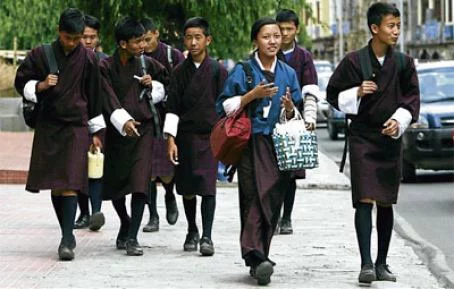Has your life been 4.7 per cent better within the last three months? If the economic indicator in the form of gross domestic product (GDP) accurately reflects personal well-being, this statement would ring true as the figure quoted is Malaysia’s GDP growth rate for the first quarter of this year. However, the notion of GDP as a yardstick for well-being is being challenged, with the recently published World Happiness Report generating much excitement and debate in the field of measuring progress.
GDP measures the total production of a country and is used by most countries to measure and compare economic growth and overall economic performance. Various quarters have questioned its adequacy in capturing higher order goals of nations such as well-being, and have suggested alternative or supplementary measures.
Undeniably, the GDP has served us well and will continue to do so. Malaysia has transformed itself since the 1970s by averaging impressive growth rates. However, in what is termed the Easterlin Paradox, studies indicate that whilst societies tend to be happier with an increase in income to meet basic necessities, beyond a certain point, the relationship between happiness and income is only down to how your earnings compare with those around you.
As we chart our developmental journey from middle income towards a high-income country, is it the pursuit of high-economic growth or the pursuit of happiness on which we should focus our efforts?
The United Nations commissioned a study on happiness, and the resultant World Happiness Report was recently published. The report was inspired by Bhutan, where gross national happiness (GNH) is measured instead of GDP.
Based on surveys undertaken in 156 countries, Malaysia was placed 51st in the World Happiness rankings. Is 51st place a credible ranking? As we aspire to emulate bigger Asian economies such as South Korea and China, the ranking shows that we figure quite well, being placed higher than these countries, which are ranked 56th and 112th respectively along with being the second "happiest" country in Southeast Asia, only behind Singapore. On the other hand, being ranked 51st out of 156 countries is nothing to shout about.
However, a look at another survey provides "better" results for Malaysia. The World Values Study’s Happiness Index, which was also quoted in the report, carried out a survey based on a simple question of whether "in general are you very happy, quite happy, not very happy or not happy at all?" Malaysia was ranked a respectable eighth above Norway (ninth) and below Singapore (seventh) out of 103 countries surveyed.
The report explains that the variances are down to different methodologies, with the first methodology being more comprehensive. But this demonstrates the subjectivity prevalent in measuring happiness.
So, should we take this seriously? While challenges persist, the quest for measuring what is most important to us should not be abandoned. The more important question is whether it is happiness that we value most.
The context of this emerging "industry" of measuring happiness has to be understood. The "happynomics" movement is gaining prominence borne out of the recognition that we cannot continue to develop the way we have been.
Environmental degradation has resulted in the erosion of our critical natural capital that is vital for sustaining life and preserving our well-being. Alternative means of increasing well-being must be pursued if we are to have any future at all.
The idea is simple: there is more to life than economic growth.
The World Happiness Report takes its cue from Buddha and Aristotle, highlighting that the road to happiness is not through increasing material wealth, but towards a middle path between restraint on the one side and craving material goods on the other.
In spite of our cultural diversity, the middle path is a shared value between Muslims, Buddhists,
Christians and Hindus alike. The concept of wasatiyyah in Islam encourages pursuing moderation and balance and Malaysia has formed an Institute of Wasatiyyah along with championing the Global Movement of Moderates.
There are also encouraging efforts within Malaysia for alternative methods of measuring progress. The Federal Department of Town and Country Planning is undertaking a study in happiness indicators within Malaysia and the Economic Planning Unit produces the Malaysian Quality of Life Index. Whether we focus on happiness or not, the most important thing is to continue and enhance efforts that can provide a real understanding of what we value most as Malaysians, and find metrics that can best measure what we ourselves define as progress. On top of that, we also have to ensure we choose a path that will provide sustained progress to preserve and enhance the ability of our current and future generations to pursue our path towards happiness.
This article first appeared in The New Straits Times on 5 June 2012





